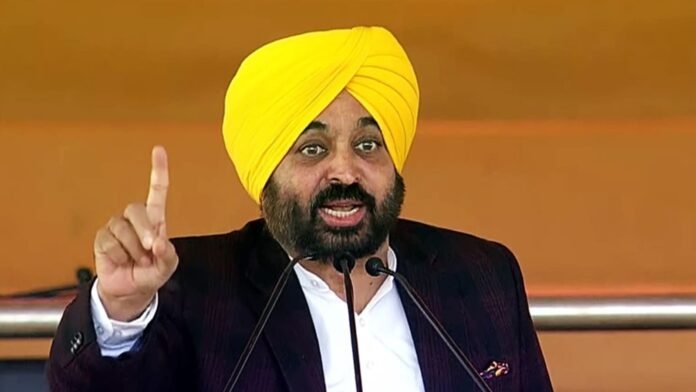The political landscape of Punjab has been set ablaze with controversy and speculation following explosive allegations made by Aam Aadmi Party (AAP) Chief Arvind Kejriwal. In a startling revelation, Kejriwal claimed that Union Home Minister Amit Shah had threatened to topple the AAP-led government in Punjab, suggesting that Chief Minister Bhagwant Mann’s tenure could be cut short as early as June 4. The incendiary allegations have reignited tensions between the ruling AAP and the central government, casting a shadow of uncertainty over the future of Punjab’s nascent administration and igniting debates about the integrity of India’s democratic processes.
The allegations, made by Kejriwal during a press conference, sent shockwaves through Punjab’s political landscape, with both supporters and detractors scrambling to make sense of the unfolding drama. According to Kejriwal, Shah’s purported threat to destabilize the Punjab government came as a response to AAP’s resounding victory in the recent state elections, which saw the party secure a historic mandate and propel Bhagwant Mann to the chief ministerial office.
The timing of Kejriwal’s allegations, coming just days after Mann’s ascension to power, has added fuel to the fire, fueling speculation about the motives behind Shah’s alleged threat and the potential ramifications for Punjab’s political stability. With AAP’s meteoric rise posing a formidable challenge to established political players in the state, the specter of external interference has raised concerns about the sanctity of democratic institutions and the rule of law.
For AAP supporters, Kejriwal’s allegations serve as confirmation of their suspicions that the central government is intent on thwarting their party’s ascent to power in Punjab. They view Mann’s administration as a beacon of hope for transformative change in the state, and any attempt to undermine it is seen as an affront to the will of the people and the principles of democracy.
However, critics have been quick to dismiss Kejriwal’s claims as political theatrics aimed at deflecting attention from the AAP’s own governance challenges and the internal rifts that have surfaced within the party in recent months. They argue that allegations of political vendetta by the central government are baseless and serve only to sow discord and undermine public confidence in democratic institutions.
Amidst the swirling controversy, questions abound about the veracity of Kejriwal’s allegations and the potential fallout for Punjab’s political landscape. If indeed there is substance to his claims, the implications for the state’s governance and stability are profound, raising concerns about the erosion of democratic norms and the encroachment of central authority into state affairs.
In response to Kejriwal’s allegations, the central government has vehemently denied any involvement in efforts to destabilize the Punjab government, dismissing the accusations as politically motivated and devoid of merit. Union Home Minister Amit Shah has categorically refuted the claims, asserting that the central government respects the mandate of the people and is committed to upholding the principles of federalism and democratic governance.
As the political drama unfolds in Punjab, the stakes could not be higher for Chief Minister Bhagwant Mann and the AAP-led government. With the specter of external interference looming large, Mann’s administration faces formidable challenges as it seeks to deliver on its promises of inclusive governance and meaningful change for the people of Punjab.
In the final analysis, Kejriwal’s allegations have thrust Punjab into the spotlight once again, exposing the fault lines that run deep within its political landscape. As the state navigates the turbulent waters of political upheaval and uncertainty, the resilience of its democratic institutions and the will of its people will be put to the test, shaping the course of Punjab’s political future for years to come.

